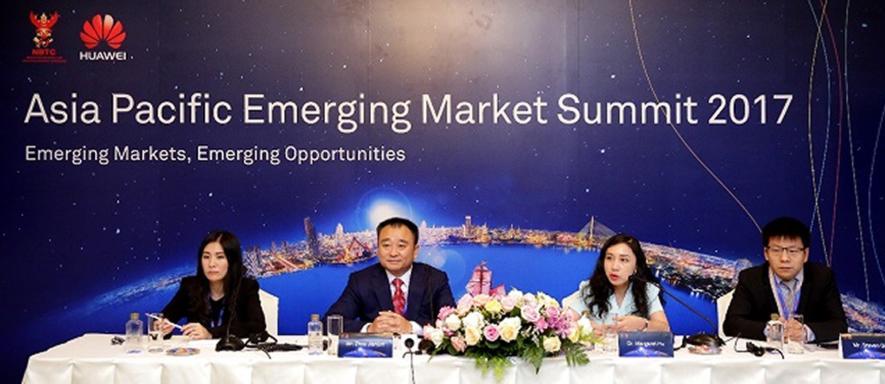Young consumers across Asia Pacific are now the core driver for new communications services and will have an impact on operators’ business, said Zhou Jianjuan, Vice President of Huawei’s Carrier Business Group, speaking at the Asia Pacific Emerging Markets Summit in Bangkok, Thailand, on August 29.
Zhou said young consumers today account for more than half of Asia’s fast-growing population and have grown up as mobile phone and computer users with high expectations of technology. Huawei, he said, sees three areas where these young consumers are driving demand for improved digital services that will have a major impact on telcos: Development of new ICT policies, creation of industry ecosystems, and demand for new business solutions.
Operators investing in emerging markets have hit bottlenecks hindering network development, according to Huawei. The results have been slowing revenue growth, inflated costs in network construction, and an unsatisfactory experience in network operation and maintenance.
Operators in emerging markets need to turn this situation around and deliver a better network experience as well as accelerate return on investment (ROI) in emerging markets, the Chinese vendor claims. The three areas Huawei proposes to improve - ICT policies, development of industry ecosystems, and business solutions tailored to customer demand - will help operators make a breakthrough in the current situation, the company said.
"Huawei stands committed to network development in emerging markets, and helping operators identify value customers, develop value services, and build value networks,” Zhou noted. “Together, improved industry policies, reuse of existing networks, and innovation in technology and business strategies will enable operators to increase efficiency and revenue, while creating a positive business cycle with network construction and development of new services.”
Huawei said it works to develop ICT in emerging markets by engaging with governments and regulators to promote policies that favor robust spectrum development and technological evolution. In building industry ecosystems, the company has already seen progress in site FTTx alliances and content aggregation.
In the case of site industry alliances, Huawei said it helps operators leverage existing public assets from governments and tower providers in building a site ecosystem in a manner that shares benefits among all parties involved.
Considering the current situation in emerging markets, Huawei said it’s working with operators to offer a series of innovative business solutions with "User +, Home +, Asset +, Efficiency +" in the following areas to:
- Increase the efficiency of operations and maintenance to benefit users from different financial backgrounds. This will lead to interconnections that promote economic and social development.
- Implement fast deployment of broadband to the home and indoor digitization to improve deep coverage and the user experience.
- Fully leverage existing network and public assets to unleash site potential, and optimize spectrum assets by cloudifying air interface resources to maximize spectral efficiency.
